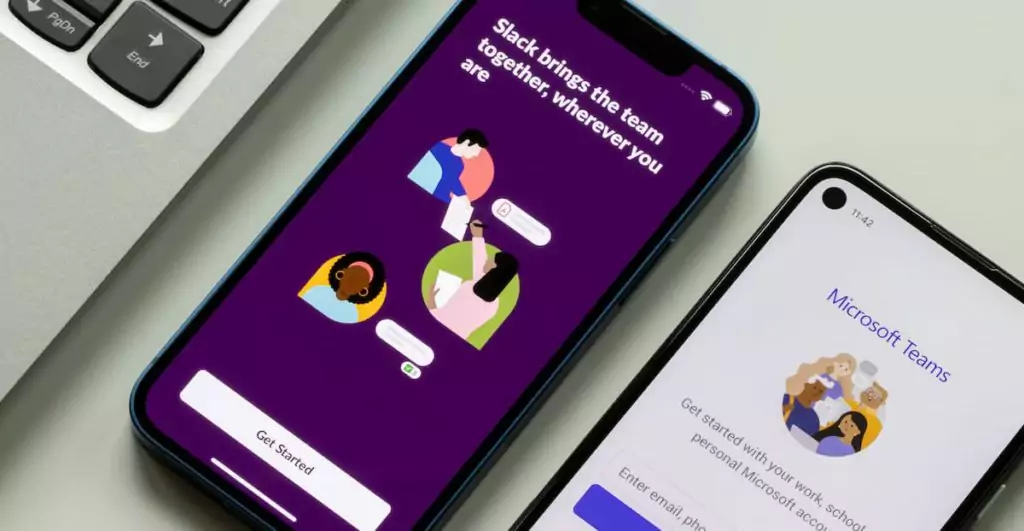Since the start of the Covid-19 pandemic, many companies have shifted to a remote workforce or hybrid work model and are now seeing the benefits of remote work for the first time.
While early predictions suggested that this new trend was a passing fad likely to end with the pandemic, it’s now clear that remote work is here to stay.
In fact, a recent study investigating the process of remote work adoption by US organizations found that the model has become a widespread and increasingly standard workplace practice.
This is great news for tech workers and those hoping to change careers, as it opens up a wealth of new opportunities. But what are the key advantages of remote work for employees and employers?
In this post, we’ll explore the following topics to help you understand why this work model is growing in popularity:
- What are the most important advantages of remote work?
- The top 9 benefits of remote work for employers
- The top 8 benefits of remote work for employees
- New work: Why remote is here to stay
- Final thoughts
What are the most important advantages of remote work?
Remote work, work-from-home, or telecommuting, has exploded in popularity for several reasons. For starters, it can help businesses save on workplace costs such as rent, utilities, and furniture.
And with the rise of high-speed internet and mobile devices, it’s easier than ever for employees to stay connected and productive from anywhere in the world.
Cost-effectiveness and productivity are, therefore, among the most commonly cited advantages of remote work. But beyond these economic effects, there are many other benefits of remote work that appeal to both employers and employees.
Let’s break this down and consider the most important advantages of remote work from both perspectives, starting with the two just mentioned.
The top 9 benefits of remote work for employers
Organizations might want to adopt a remote work policy for many good reasons, including economic, social, and environmental ones.
To give you an overview, here are the top nine benefits of remote work for employers, based on our research:
1. Increased cost-efficiency
As mentioned, one of the most significant advantages of remote work for business managers is its cost-effectiveness. With no need to rent or maintain office space, businesses can save a considerable amount of money by allowing employees to work from home.
And given the rising energy costs, this will likely become an increasingly important factor in the future.
2. Increased productivity
Another benefit of remote work is that it can increase employee productivity.
A 2021 study investigating contributing factors to remote work productivity during the COVID-19 outbreak found, for example, that self-leadership and autonomy were essential factors in remote workers’ ability to maintain high levels of productivity and engagement.
Improved performance also affects the bottom line by reducing the need for overtime or extra staff.
3. Greater employee satisfaction
The increased satisfaction that remote work can bring employees is another positive effect. This is because the ability to work from home often provides employees with a better work-life balance, which can lead to increased job satisfaction and motivation.
Happy employees are also less likely to leave their jobs, which further reduces staff turnover and associated costs.

4. Reduced absenteeism
Employees who are happy and satisfied with their jobs are also less likely to take time off sick. An analysis of employee data conducted by the Fiduciary Group in 2020 confirmed this.
After the remote work policy was adopted, the Group saw a significant, company-wide drop in sickness days related, among other things, to increased job satisfaction.
5. Greater pool of applicants
When remote work is an option, businesses can cast a wider net when recruiting new employees. Since they’re no longer limited to local candidates, they can tap into a global talent pool.
This gives them a better chance of finding the best possible candidates for the job, thus improving the workforce quality.
6. Better talent retention
In addition to attracting better talent, remote work can help businesses keep the talent they already have. As explained, this is because employees who have the option to work from home are less likely to leave their jobs in search of greener pastures.
Therefore, remote work improves company loyalty and helps businesses save on the costs associated with recruiting and training new employees.
7. Enhanced corporate social responsibility
Recently, there has been an increasing focus on corporate social responsibility. And rightly so, as businesses have a responsibility to act in a way that is ethical and sustainable.
Allowing employees to work from home is an excellent way for companies to reduce their environmental impact, as the carbon emissions associated with business travel, for example, are eliminated.
8. Improved competitiveness
In a globalized economy, businesses need to be able to compete with organizations from all over the world. By offering remote work, they can level the playing field and attract top talent, regardless of location.
This is increasingly important in today’s climate of digital transformation, where businesses need to be agile and adaptable to survive.
9. Better disaster preparedness
It may sound far-fetched, but remote work can help businesses prepare for and respond to disasters.
With a remote work policy in place, enterprises ensure that operations can continue even if their physical premises are affected by a natural disaster, for example. So, a welcome side-effect of this work trend is that it boosts business continuity and resilience.
Having looked at the key advantages of remote work for employers, let’s now discover the benefits employees can enjoy.
The top 8 benefits of remote work for employees
If you’re currently looking for flexible work in the tech space, you’re in luck. There are plenty of great remote work opportunities out there, even for people without much work experience.
But how do you know if remote work is the right fit for you? Maybe the following eight benefits will help you decide.
1. Better work-life balance
The first and most obvious benefit of working remotely is that it gives you the opportunity to create a better work-life balance.
When you’re not tied to a physical office, you can structure your day in a way that works for you and gives you more time for your personal life, including family commitments and social engagements.
2. Greater Flexibility
When you work remotely, you can choose the schedule that works best for you. Flexible hours allow you to take care of personal errands during the day and then make up for the time by working in the evening or on weekends, if necessary.
This is a huge advantage for people who have difficulty fitting traditional work hours into their schedules.
3. Less time commuting
If you live in a big city, you know that commuting can be a huge time-suck. Working remotely eliminates this wasted time, giving you back precious hours to do things you actually enjoy.
In addition, you’ll save money on transportation costs and other commuting-related costs, such as gas or parking fees.
4. More freedom and autonomy
As someone who works remotely, you’ll also have more freedom and autonomy to do your job the way you want to. For instance, you won’t be micromanaged as closely as you might in a traditional office setting.
And you’ll have the opportunity to take more initiative and be more creative in your work.
5. Easier time management
Next on the list of remote work benefits for employees is that this work model can help you manage your time more effectively.
When you’re not constantly interrupted by colleagues or meetings, you can focus more easily on the task at hand and get into a flow state. This is especially beneficial for introverts who may need more quiet time to think and work independently.
6. More effective communication
Remote work can also make communication more effective. This is because remote teams use written communication more than teams in traditional offices, which can lead to more clear and concise communication overall.
Another advantage of written communication is that it can be easily documented and referenced later, which helps to keep track of projects and progress.

7. Comfortable work environment
Another big plus of working remotely is that you can create a work environment that’s more comfortable for you. Whether you prefer working from home or in a co-working space, you can find a setup that suits your needs and helps you be more productive.
Typical personalization options include setting up a standing desk, working in complete silence, or playing music while you work.
8. Fewer distractions
A final advantage to take into account when considering remote work is that you’ll likely experience fewer distractions. In a traditional office setting, it’s easy to get sidetracked by colleagues dropping by your desk, impromptu meetings, or general office chatter.
But when you work remotely, you can set boundaries and establish rules to minimize distractions, thus maximizing your productivity.
We also spoke to some tech employees who are working in either a remote setting or hybrid set-up. In this video, you can find out what they consider the biggest benefits of remote work are, what challenges it presents, and understand how working remotely has impacted their lives:
New work: Why remote is here to stay
Given all these benefits for employers and employees, it’s no surprise that remote work is on the rise.
The future of work, post-Covid 19, is likely to be even more remote-friendly, with more companies offering flexible working arrangements and employees valuing the freedom of working remotely.
But the driving forces behind this new world of work go beyond just the pandemic. They include technological advances, the changing demographic of the workforce, and the rise of the gig economy.
This will continue to transform industries like tech, media, and marketing, which are already highly volatile and fast-paced, in one direction: toward a more decentralized, remote-first model. In that respect, the pandemic has simply accelerated a trend that was already underway.
So, if you’re looking for a career that offers flexibility, autonomy, and the opportunity to work from anywhere, these are the industries to keep an eye on.
Final thoughts
The new world of work is full of opportunities, especially for those willing to embrace change and seize the advantages that remote work offers.
With the many benefits of remote work for employers and employees, it’s here to stay and will continue to shape how we work in the years to come.
There’s never been a better time to pursue a career in a remote-friendly industry. So, if you’re feeling stuck in your current job or looking for a new challenge, now is the time to consider a career move.
